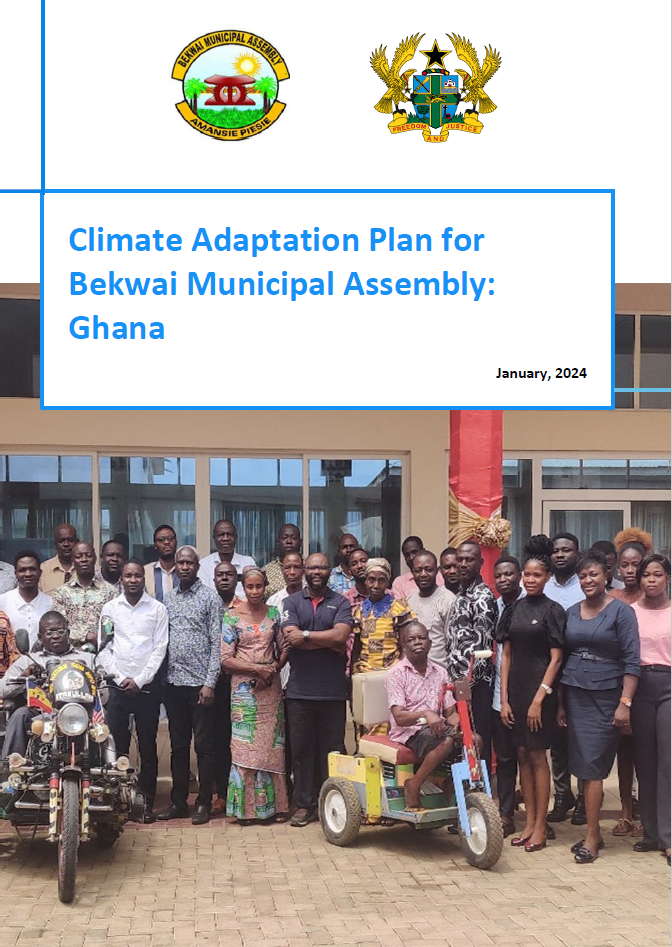
Climate Adaptation Plan for Bekwai Municipal Assembly: Ghana
Growing evidence of climate change and its associated impacts across multiple sectors in Ghana have made adaptation an urgent imperative. Ghana’s National Adaptation Planning (NAP) process acknowledges this urgency and has put in place processes to build national and subnational capacity to effectively plan and implement adaptation at multiple levels. Ghana’s NAP process provides the requisite organizational structure for local governance systems to make the bold efforts required to build human and institutional capacity to increase local community resilience.
As part of Ghana’s NAP process, the Bekwai Municipal Assembly (BMA) undertook a Climate Change Vulnerability Assessment to provide insights into the level and extent of climate change-induced vulnerabilities in the Municipality. The assessment of various data determined that the agricultural sector is the most vulnerable to the impacts of climate change in the Bekwai Municipality, which is primarily an agricultural Municipal Assembly with the majority of residents obtaining their livelihood from subsistence farming.
This adaptation plan was developed as a next step in BMA’s adaptation planning process, as a pilot process to apply the outcomes of the BMA Vulnerability Assessment. It aims to put the BMA on a pathway that builds resilience to climate change and enables economic and social development.
Publisher: Government of Ghana